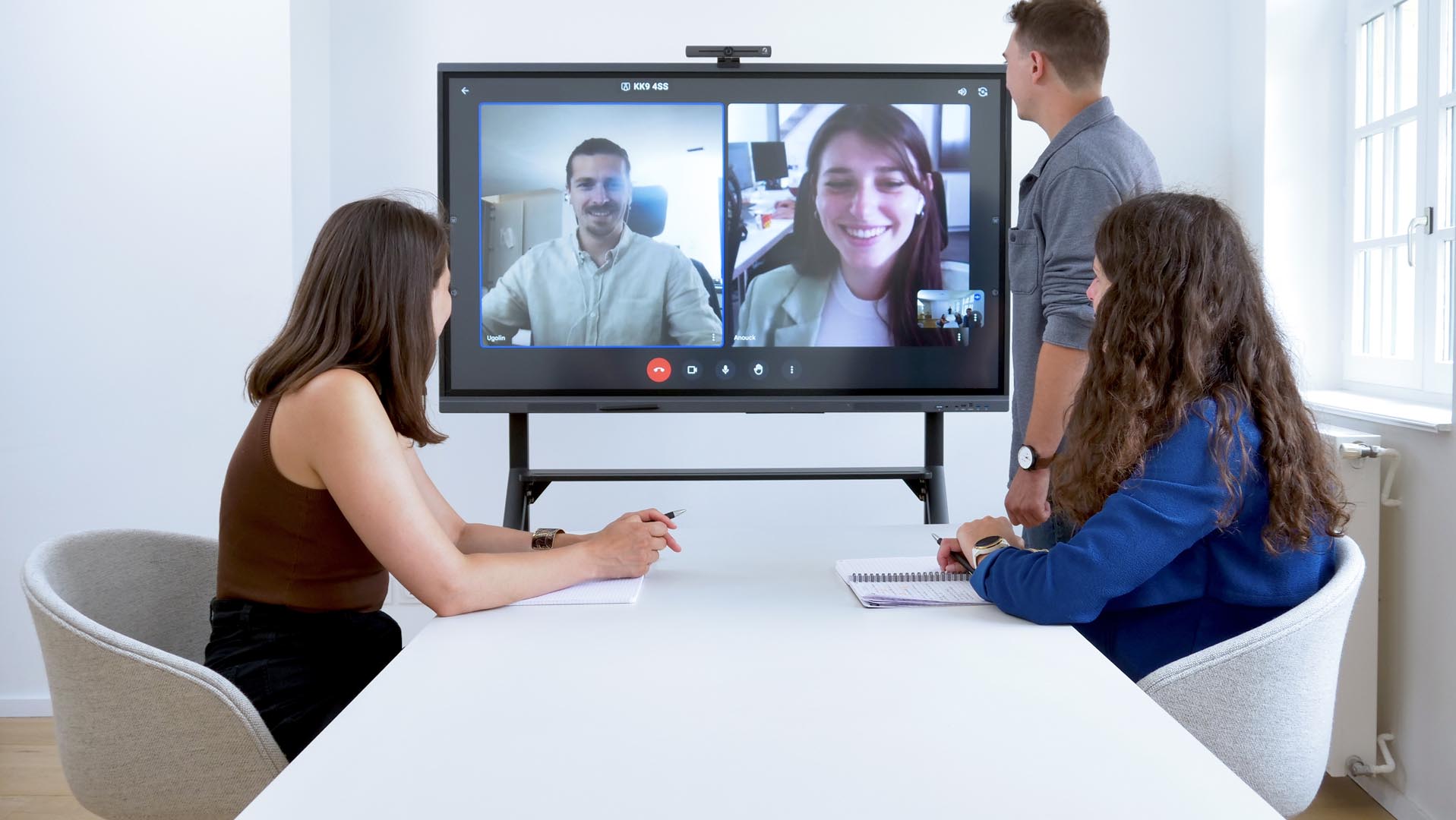In recent years, smart whiteboards have emerged as a game-changer, especially in collaborative workspaces.
As enterprises expand internationally and embrace modern hybrid-working approaches, it has become clear that effective communication and idea-sharing are the cornerstones of a company’s success. Find out what a smart whiteboard is, and why you should modernise your collaborative working space with one.
What is a smart whiteboard for collaborative workspaces?

To describe a smart whiteboard in simple terms, it is essentially a touchscreen tablet, but scaled up. It is connected to the internet, and can be connected to from other devices (e.g., smartphones, laptops, PCs).
With up to 40 simultaneous touch-points on a screen, smart whiteboards are also designed for use by multiple people at the same time. The screen responds to contact from a fingertip or stylus, so users can add, move, change and manipulate items on the screen – like text boxes, annotations, images, videos, and more.
In short, it offers the benefits of a traditional whiteboard combined with cutting-edge technology.
Why to use a smart whiteboard in your collaborative workspace

Seamless idea-sharing from anywhere
One of the main benefits of smart whiteboards is that they act as a dynamic, creative hub on which meeting attendees can contribute from anywhere.
This is especially important for remote teams, and companies with offices distributed across the globe. Holding a brainstorming session with employees working from home, and a team based in the US? Watch as all of your team members interact with your smart whiteboard in real-time, and fine-tune all the ideas they note down.
Real-time editing, annotation, and comments
Want to build further on the slides of a presentation, mind-mapping session, or brainstorming meeting? Gone are the days of meeting minutes that no longer make much sense after the meeting is over, or employees frantically taking down notes for themselves that are disconnected from their relevant slides.
With a smart whiteboard for collaborative workspaces, both participants and presenters can add notes, annotations and comments that correlate directly with the relevant slides.
Best of all, since these additional notes can be saved alongside the presentation itself, all employees can benefit from comprehensive annotations and note-taking.
Record, back up and share your collaborative working session
Since everyone takes away different points after a collaborative meeting is over, it can be quite difficult for teams to act together in unison on the results of a brainstorming session, for example.
With a traditional whiteboard, all of the information and progress is wiped clean at the end of the session.
However, when using a smart whiteboard, you can save and record every aspect of your collaborative working session – including dialogue and audio, slides, annotations, and much more. Want to share your collaborative working session with participants once it is over?

No problem – simply record your meeting session and email the file to all attendees. This is particularly useful for those who are unable to attend a session, or need to leave part-way through one. It is also a fantastic way for people to recap on the session and note down key points that they will later act on.
Save on space, and use less paper
Whether you would usually use a projector and screen or a traditional whiteboard, you can save space and resources by embracing smart whiteboards for collaborative working. Projectors can often be cumbersome, heavy pieces of equipment that are difficult to position and move around – especially if the collaborative working space is on the smaller side.
Likewise, standard whiteboards can present an issue because teams can very quickly run out of space on them. Often, valuable notes, ideas and diagrams must be rubbed out to make way for new ones as the session progresses.
In addition to this, almost anyone who has led a meeting will be familiar with the frustration of marker pens running out of ink mid-way through a productive collaborative working session.
With smart whiteboards, this is an issue of the past. Finally, since presentations on smart whiteboards can be shared with audience members, you can say goodbye to printing costs and wads of documents – simply send them digital copies that will always be accessible via their email and devices.
